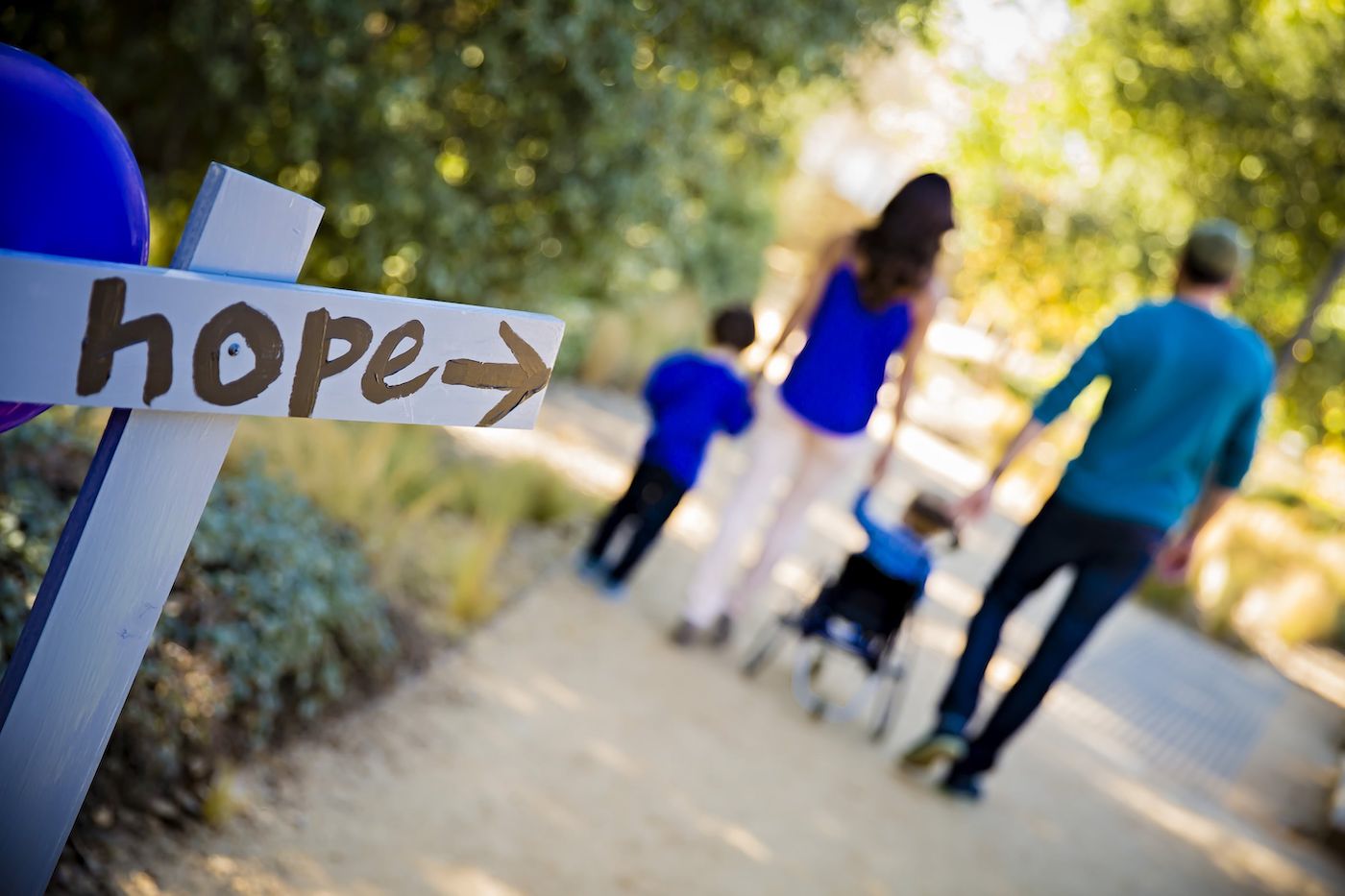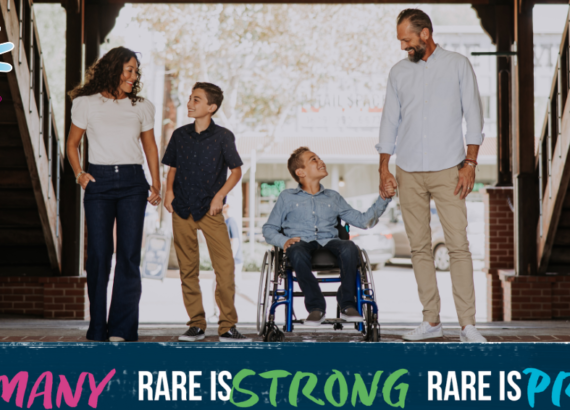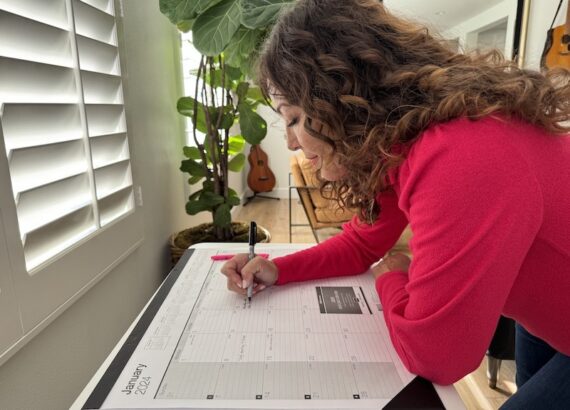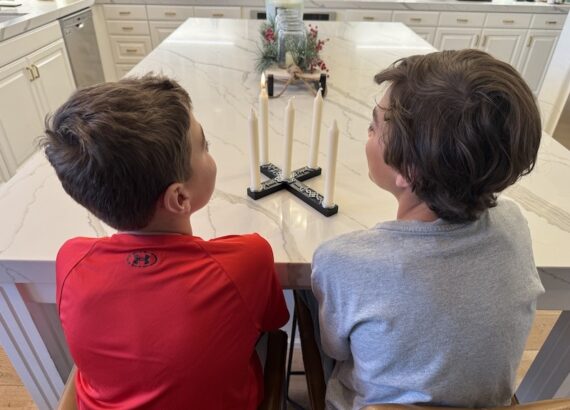The 6 Things You Need to Begin Your Rare-Disease Fight

So what do you do when faced with something so monumental? Where do you begin? What are the steps for your rare-disease fight?
I’m going to break it down by giving you the six most important things you’ll need as you set out on your rare-disease fight:
- You need a growth and courage mindset.
- You need information and knowledge.
- You need an expert care team.
- You need connections to other rare-disease parents.
- You need a plan.
- You need hope.
1. You need a growth and a courage mindset.

After decades of research, world-renowned Stanford University psychologist Carol S. Dweck, Ph.D., discovered a simple but groundbreaking idea: the power of mindset. In her book Mindset, she shows how success in school, work, sports, the arts, and almost every area of human endeavor can be dramatically influenced by how we think about our talents and abilities1. People with a fixed mindset—those who believe that abilities are fixed—are less likely to flourish than those with a growth mindset—those who believe that abilities can be developed.
Dr. Dweck found that people’s theories about their own intelligence had a significant impact on their motivation, effort, and approach to challenges. Those who believe their abilities are malleable are more likely to embrace challenges and persist despite failure.
Mama, you are diving into unchartered territories. Most of us don’t know how to fight the rare-disease fight. We may not know how to be a parent of a child with a rare disease. Most of us don’t comprehend the science behind our child’s condition. Most of us don’t inherently know best care practices. Most of us don’t understand medical therapies and interventions. All of these things must be learned.
As we are thrown into this new jungle with no training, no gear, and no understanding of the language, it is vital that we believe we can learn how to navigate this new land. We must be open to growth. We must adopt this growth mindset or we are dead in the water.
This growth mindset tells us that even though we don’t understand all these things now, with effort and time, we will. We have the ability to learn what we need know to help our kids. We have the opportunity to grow our knowledge. We have the capability to learn how to fight the rare-disease fight.
If you adopt a growth mindset, you will in a sense be saying, “There is a big obstacle in front of me, and though I don’t understand everything about it yet, I am confident I can learn all I need to know and ultimately help my child.” Perseverance and resilience are produced by the growth mindset.
When I started out trying to learn about my son’s rare disease, much of the information I was gathering was way beyond my competency. I certainly didn’t understand biology, anatomy, genetics, and all the other specialties that come with a rare disease. But with time and effort I learned. I studied information until I had a true understanding of my child’s disease or at least knew enough to allow me to care for him. The more knowledge I gained, the more my belief that I would be able to take care of my son grew. This growth mindset helped me grow not only my knowledge but my confidence.
In addition to the growth mindset, you will also need to have a courage mindset. A courage mindset is taking action even when you’re afraid. Action generates courage; courage is not the prerequisite for action. If you haven’t read my article “Shifting Your Mindset from Distress to Prowess” about making the decision to shift your mindset from bravery to fear and from distress to prowess, read it here now.
The first step is to get yourself in the right frame of mind for what’s before you. Adopt growth and courage mindsets and take that first step in your rare-disease fight!
2. You need information and knowledge.

After you have your mindset in the right place, the next step is going to be to gain knowledge on your child’s disease and best care practices. At the beginning it’s going to feel like there’s so much to learn and so much to do, and it all feels life-threateningly important. I know this is overwhelming and scary. But you know what’s the best way to battle the fear of the unknown? Make it known. Go out and get the information you need to understand your child’s rare disease and your rare-disease fight. Once you’re armed with information, some of the fear will subside.
Here’s the deal. We can walk in unprepared, taken back by every thing that comes our way, or we can prepare. We can come in ignorant or we can come in knowledgeable. It’s our choice.
You know all those questions that are floating around in your head? Get them answered. Information is your friend, and knowledge is power. So get filled up with the information you need.
How do you get this information and knowledge? By doing a boatload of research. There are actually lots of resources out there. They’ve always been there; you’ve just never seen them because you weren’t looking for them and didn’t need them. If you start looking, you’ll realize the vast number of resources available to you.
Here are the places to look for information:
- Foundations for your child’s condition
- Support groups for your child’s condition
- State resources for children with special needs
- State special-education programs
- Local parent groups
- Groups on social media
- American Association of People with Disabilities
- Americans with Disabilities Act
- Accessible sports and recreation
- Consortium for Citizens with Disabilities
- Council for Exceptional Children
- Developmental Disabilities Council
- Disability.gov
- Disability Rights Group
- Everylife Foundation for Rare Diseases
- Federation for Children with Special Needs
- Global Genes
- Hospital care centers
- Medicare
- Medical therapy units
- Mental health services
- National Dissemination Center for Children with Disabilities
- National Organization for Rare Disorders (NORD)
- Respite care services
- Social Security Administration
- U.S. Department of Health and Human Services
In addition, there are two rare-disease organizations in the U.S. called NORD and Global Genes that are great places to start.
Feeling like there’s so much to know and not having the knowledge needed often leads to anxiety. Battle that anxiety with information. The year Miles was diagnosed, my husband and I attended a large conference on SMA. It was filled with information, and I learned more about my son’s disease and the rare-disease fight in two days than I had in the entire nine months before attending the conference.
We also made it our mission. My husband and I showed up on time for every session, sat in the front row, and took notes. I was that annoying chic who raised her hand to ask questions at every break and every opportunity. I figured I was there to get information and I wasn’t leaving that conference with any more questions in my head.
It worked. When we left, we felt armed with knowledge. While there was still so much that we needed to do, at least now we knew what to do and how to get there. The more answers I got and the more things I was able to get done, the more my anxiety subsided.
You’ll need to get comfortable with asking questions. Lots of questions—until you understand everything you need to understand. Ask those questions even when you think they may be dumb or repetitive or annoying. And if you get an answer you don’t understand, ask more questions until you do understand. You’ll also need to be resourceful. If you don’t get an answer in one place, look somewhere else. Figure out alternative ways to get information and other ways to get things done. Keep digging, searching, and seeking. Get scrappy. Get the information you need.
3. You need an expert care team.

You’ll need to seek out the best care team possible for your child’s rare-disease diagnosis. In all honesty, I want to say that all doctors are created equal. However, this is not always the case. Some doctors have a greater knowledge in a specialty area than others. Some doctors have a different approach or outlook on their care practices.
Knowing that they are not all created equal puts the decision on you to determine which doctor is going to be right for your child. When dealing with a rare disease that many healthcare providers may not see very often, it will be very important that you seek out the best, most-proficient doctors in that area.
When my son was diagnosed with SMA, which is a neuromuscular disease, we had to decide where to take him for care. There is a children’s hospital very close to our home, but at the time there had been some changes to the neuromuscular department and some turnover to the neuromuscular care team. Instead of just defaulting to the closest doctor in proximity even though the department wasn’t thriving, we decided to seek out the best neuromuscular doctors and centers that were available to us. It turned out that another hospital two-hours away from us was world-renowned for their neuromuscular department, so we made the decision to drive the extra time to go to this hospital and be seen by doctors that had vast experience in this area.
The doctor we saw was the head of the neurology department. Not only did she have many years of experience under her belt, but she was also a teaching doctor and a researcher. This meant she was always learning and privy to new information and therapies. We loved the blend of both her years of experience that afforded her wisdom, married with her progressive approach that came from being a teaching doctor and having her finger on the pulse of research.
It turned out that even though we had to go through the necessary steps of testing, she suspected SMA from the start. She had seen it and had experience with it. Not only that, as soon as we were given my son’s diagnosis, she was able to tell us what to do next. She was in possession of the most current best practices. I now believe in this rare-disease fight technique of seeking out the most knowledgeable doctors so wholeheartedly that we do it for any medical situation within our ability and power.
One more example from my own life is when my son had to have surgery on his hips and having this type of surgery was new to children with my son’s diagnosis. There were not a lot of doctors on the West Coast where we lived who had performed this surgery on an SMA child. It was a common surgery, so they had performed it on children with many other types of diseases, but they hadn’t performed it on an SMA child.
Therefore, although they knew from experience how to perform the procedure, they didn’t have firsthand outcomes on children with SMA. They couldn’t tell me clinically or anecdotally about how SMA patients healed or benefited from the surgery. So we sought out doctors who had. One of the leading doctors who had been performing this surgery on SMA children was on the East Coast. We reached out to him to ask questions, to volley scenarios, and to learn about patient outcomes. We exchanged emails, and I was able to get many questions answered. So even though we weren’t physically anywhere near him, we still received input and insight from the guru.
Let me be honest, this takes time. This takes work. This takes a lot of effort from mama. This takes research and phone calls and appointments to vet doctors. This takes digging around to find these contacts and ways to access them.
If there is a foundation or organization for your child’s disease, contact them to see if they already have a list of providers. Get on children’s hospitals’ websites and research the doctors in the relevant departments. Leverage your contacts. Who do you know? Do you have friends or family members who are in the medical field or who know someone in the medical field? Do you have friends or family members who know any physical or occupational therapists? Ask around to see if you have any connections. Attack this rare-disease fight from all angles.
I know this won’t work in all cases. Some of us live in areas where we don’t have access to top children’s hospitals or we don’t have insurance coverage that allows us to access these expert specialists. Some of us have to go to certain doctors because they are within our proximity or within our coverage plan. But it is worth at least making you aware that if you do have a choice in your child’s care team, seek out the best.
When I started our rare-disease fight, I didn’t even know to think that way. My go-to was just to call and make an appointment with the doctor who was closest to where we lived and with whom it was the easiest to get an appointment. Over time I’ve learned that we have a choice and that we can choose doctors based on skill and expertise. So if you have the ability and the time to seek out the best, I believe it’s worth it in the end. If nothing else, it will give you peace of mind.
This applies to all care providers for your child. Physical therapists, occupational therapists, speech therapists, behavioral therapists, equipment providers. We now apply this to everything within our ability, and we have been blessed with an amazing care team for our son. We know that we are privy to the most up-to-date information, and we feel confident that he is receiving the best care.
Invest the needed time to find the right care team for your rare-disease fight. It will yield better care and better communication, and will pay off in the long run.
4. You need connections to other rare-disease parents.

Next, look for other rare-disease parents who have gone before you and ask them to show you the way. While none of us asked to be in this jungle, those who are here are some of the most brilliantly smart, wickedly funny, and tenaciously savvy women I’ve ever met. They are the women I would choose to be around even if I wasn’t in this jungle. They are loving, caring, and compassionate, and their hearts are so big you can almost hear them beating. Their passion is on fire.
A few years back, I helped with a fundraiser to raise money for SMA research. One of these fellow rare-disease moms helped me out. She had a daughter with a rare condition completely different from my son’s, yet there she was volunteering her time to help with my son’s disease. She showed up at all our fundraising planning meetings, and on the day of the event, she was organizing and making things happen behind the scenes. She was so good at it too! The girl had a gift—and she used it to help my child and me (love you, Rachel). It still blows me away. So trust me when I say if you need help, other special-needs moms will take you by the hand and show you the way.
This is another time when you may want to leverage your contacts. Do you know any friends or family members who know a special-needs or rare-disease parent?
When Miles was first diagnosed, even though his disease is rare, my mom knew a man at her church who had a daughter with the same disease. A friend of mine was friends with an occupational therapist in another city who worked with a child with SMA. The nurse at my OB/GYN knew a couple whose child had SMA. This is a rare disease, but once I put it out there, all these connections started to form, and I then had three mothers of SMA children I was able to speak to within the first few months of Miles’ diagnosis. Those connections were a lifeline to me at one of the most difficult times—when it was all new.
The information those parents provided me at the beginning of our rare-disease fight was crucial. It was beyond helpful in not only learning about my son’s disease but in seeing examples of other parents who were walking this road. They helped me feel less alone. They gave us little tips and tools that only someone facing a rare disease would know. Because they shared similar circumstances, they had similar perspectives. They gave us a sense of community. They made us feel more normal. They gave me hope that we would find our way forward on our rare-disease fight, just as they had.
The other thing about it was that they seemed eager to help. They wanted to steer me in the right direction. They gave me tips on things they wished they would have known. I think you will find that mothers who have been through hard things want to help the next fellow mother out. They want to make things easier for you because they have been where you are. So you may feel like you’re putting them out by asking them for their time, but in reality, they love to help in this way. They will willingly make time for you.
All of this was so important in setting us off into the right trajectory for our rare-disease fight. They gave us a springboard. They sent us down the right paths. Our family will remain forever grateful to them.
So ask around and see if you can find any connections through people you know. Another place to ask is your child’s hospital. See if they can put you in contact with any other parents in your area. They usually have parent resource centers that can help connect you with other parents.
Obviously, we are dealing with rare disease and for some of us there may be only one hundred people or less worldwide with our child’s disease. In cases like these, it may be harder to track down a parent with your child’s specific disease. However, if you’re able to find any organizations or specialists or researchers that can connect you, I think you’ll find that these other parents want to connect with you. They want to help you. Perhaps over time you can help each other.
If you’re still unable to find someone with your child’s exact disease, other rare-disease parents can be a wealth of knowledge. For example, my son has SMA, but so much of what I’m writing about and have experienced will be relevant for moms of children with different rare-disease diagnoses. We can help each other so much because we have common circumstances. We will face common challenges. We will need common strengths.
Let your fellow rare-disease and special-needs mamas fill you up. These connections will be a lifeline.
5. You need a plan.

After you have your mindset ready, are filled up with information and knowledge, have your care team in place, and are armed with the support and input of other rare-disease moms, you can begin to devise your rare-disease fight plan. For me, having a plan lessened my anxiety, gave me some feeling of control, and allowed me to spring into action.
I’ve heard countless rare-disease moms talk about this. At first their minds were running rampant with questions. Once they got some clarification and answers and they had a plan, they felt much better. It still didn’t change the harsh reality of all they had to do, but having a rare-disease fight plan made them feel empowered. So you’ll need to draw your roadmap. Figure out where you’re going and then put one foot in front of the other and start moving that way.
I’m talking get out a piece of paper and a pen and write it down. Write down the steps you’re going to take to move forward. This may include doctors you’re going to set up appointments with, therapy visits, equipment that’s needed, meetings with school administration, and childcare help. The point is to give your mind a break by downloading it all instead of having it spinning around and around in circles.
Once you have it all down on paper, put it in priority order. Tackle what’s most important first and start making your way down this list. Now, I know what I’m telling you is not rocket science or anything you might not already know. These are the steps that any expert would tell you to do in approaching any new project. But since there’s no guidebook for rare disease, maybe you haven’t thought to approach it this way or to apply it here too. You need to use the same strategies and tools here that you would in other areas of your life.
There’s a well-known saying that goes “plan your work and work your plan.” Apply that same strategy to this. Plan your work. Plan your rare-disease fight. Break it down into pieces. Determine where you’re heading and then start chipping away at it. If you’re not a planner, I get it. Many of us aren’t. But, mama, let me tell you how much it will help you in times like these. If you’re like, The thought of planning makes me shudder, I have a whole article on how to become a planner. See it here.
Don’t wander around in the dark. Don’t spin yourself into exhaustion. Don’t throw a bunch of darts hoping that one will stick. Instead, get your plan in place so you can use your time effectively. Time is a precious jewel that we rare-disease moms have little of, so let’s make the most of it.
Get your plan on!
6. You need hope.

Maybe this seems like an intangible thing to put on this list of needs to start your rare-disease fight. Maybe it seems fluffy or lofty or inconsequential. I’m telling you it’s a vital part of this fight.
What are your hopes? Don’t let them go. Hold on to them. Let them guide you. I still hope there will be a cure for my son’s disease, and I will die with that hope if a cure isn’t found before then. It’ll either come true or it won’t, but that hope wakes me up in the morning and nudges me to march on. Maybe I’m a dreamer. Maybe I’m a fool. But so what? Those hopes have helped my family and they have helped my son. We’ve done a lot of things we were told we would never do because of those hopes.
Maybe you’re afraid to get your hopes up too high and have them knocked down. I can appreciate that. We all feel the need to protect our hearts, as they have already been broken. But, mama, one of the most important things I can advise you is to keep hope alive. It’s another choice among many you will face about how to live your life despite your circumstances, despite the inevitabilities, despite the facts and the statistics.
Yes, your heart is aching, and yes, you have every right to feel bitter and burned. You may have more than enough reasons to feel despair instead of hope, but let me tell you, friend, hope is exactly what you need. It is the best medicine for despair and defeat.
Here’s the thing, you are going to have so much information coming at you. A lot of it will be very hard to digest. Doctors and specialists must tell you the realities, statistics, and facts. Those can often sound final. “This is what will happen,” the end. But in speaking to so many parents, this is not actually how things unfolded for them. Yes, they had to understand the facts and the statistics. Yes, it was important for them to be grounded in realities. Yes, they had to prepare for the known certainties of their child’s disease. However, some of the things they were told were certainties, never came to fruition. Some of their paths unfolded a different way.
You have to understand all the realities and then you have to leave room for hope. Instead of seeing foregone conclusions, you have to have eyes that see possibilities. A new medical intervention may be around the corner that changes the course of the disease, or your child’s disease may evolve altogether differently than the facts and stats say it will.
I have seen what hope and action can do. I have seen miracles before my very eyes. Against all odds, keep hope in your heart, and you may be surprised by the light that it shines for the journey ahead.
Those are my top six things you’ll need to begin your rare-disease fight. Yes, there is a lot before you. Yes, it feels overwhelming. But just start with one step. Then another. Then another. Take breaths, take breaks, and chip away little by little. Applaud every forward step, as little or as big as it might be.
You will start to see yourself making your way. You will start to see movement. You will start to learn. You will start to grow. You will start to make change. You will cultivate that fighting spirit that I know lives inside of you. Set it free. Trust it. Follow it.
Get ready to roar!

1Carol Dweck Mindset: The New Pyschology of Success December 26, 2007







